GEAB 154
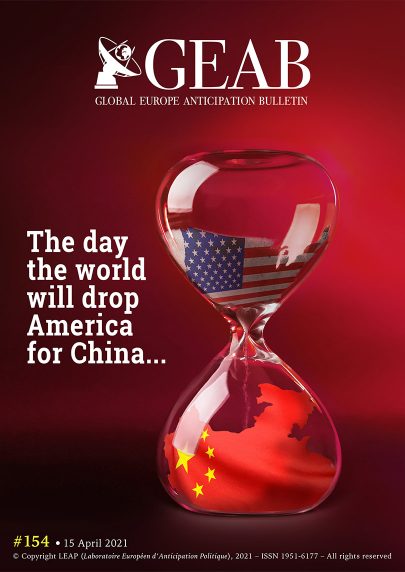
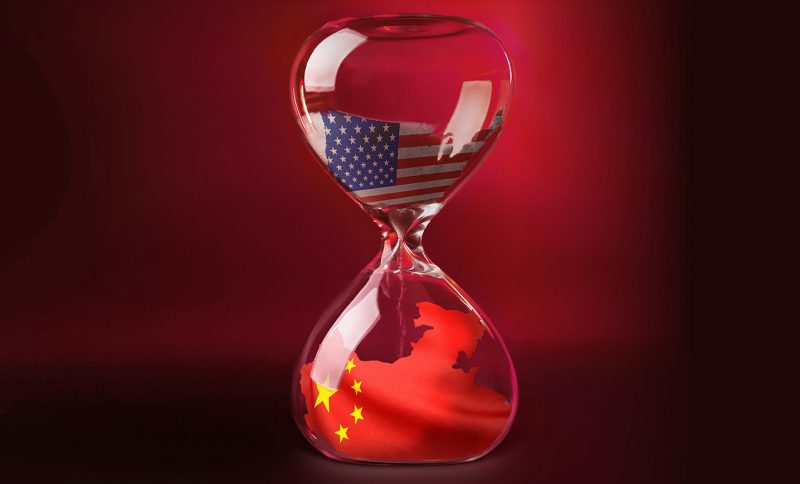
In the US-China war trap which has deepened in recent years, with Joe Biden’s arrival in the White House and his strategy of rallying a camp of “allies” around America in order to “contain” Chinese power,[1] Europeans may be tempted to believe that the Western camp will eventually win.
This feeling is reinforced by the smoke screen that an American-centric information system creates between us Westerners and not only China, but the rest of the world altogether. Looking more objectively at what is happening in the other-world, there are many reasons to doubt the chances of winning the war (commercial, ideological, technological, or even military) that America is waging to China as a response to its (for the moment still) peaceful project of co-development.
Remember that the American strategic tutelage of Europe is the result of our errors at the beginning of the 20th century. Today, Europe is in a relatively strong position and is able to negotiate its strategic autonomy by playing skilfully on the duality of the current world power. It would be distressing if, instead, we were to find ourselves having to choose sides, leading us into further misguidance ending up in weakening our position, this time to China’s benefit…
To support this warning, this article argues that America will find it very difficult to win this war against China that it is proposing to its allies.
Unplugging America from China
Over the past 30 years, the US has become “addicted” to China without side effects. But in the last 10 years, the effects of the addiction have started to become visible and problematic. Why? Simply because China, having worked hard as Deng Xiaoping demanded, intends to build a modern society and see all its efforts paid back.
This new stage of Chinese strategy is a problem for the United States, which is finally realising how much its comfort was linked to Chinese efforts. Faced with the prospect of Chinese production turning towards its domestic market, with the rise in the range and price of this production, with the increase in the cost of Chinese labour, with the diversion of a significant part of the energy to the benefit of its emerging middle classes… the purchasing power of an America that is infinitely poorer than it believed itself to be might not hold out.
This reality has been known for the last fifteen years or so, giving rise to strategies on both sides of the Pacific:
. China is proposing a smooth transition to other parts of the world thus invited to follow the same strategy (‘development at all costs’). But by investing in the infrastructure for modern development in Africa and Asia, China happens to step on the toes of Western power, increasing systemic tension;
. Meanwhile, America is hesitating between three strategies: re-route its import flows (Obama), rebuild its self-sufficiency (Trump), block the emergence of China (Biden). In this waltz of hesitation, it is losing precious time.
America-China: an overview of the balance of power
Let’s take a closer look at how China and the US compare, with the help of this graphic from the excellent VisualCapitalist website.
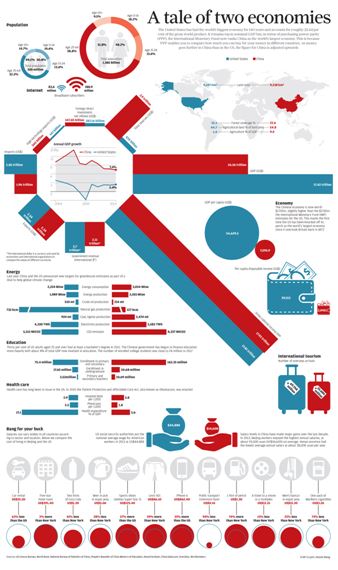
Figure 1 – A comparison of the two economies, American and Chinese. Source: Visual Capitalist.
The economic pain of a US – China divorce
America is losing precious time and dragging its “allies” into painful strategic chaos. As far as the EU is concerned, the NATO-Russia crisis of 2014 caused heavy losses to the European economy.[2] But what about sanctions against Chinese strategic enterprises? As we have seen, Europe:
. is facing a shortage of semiconductors as it launches its digitalisation project[3]
. risks seeing its Parliament reject the EU-China global agreement on investments[4] that it negotiated from a position of strength, obtaining all the guarantees it wanted[5] from a China anxious not to get angry with Europe on the eve of the American Democratic changeover (this agreement is designed, in particular, to facilitate the access of European investors to China and to balance the EU-China investment balance)[6]
. could see technology transfers come to a halt due to nationalist tensions[7]
. may see its renewable energy program slow down if it can no longer get its hands on Chinese solar panels, rare earths and electronic components for wind turbines[8]
. and so on..
For emerging countries but also developing ones, the US sanctions against China represent bad news. For the past 10 years, these countries have embarked on impressive development trajectories which owe much to China directly (both through its investments and the new approach to development it proposes)[9] and indirectly (thanks to the diversity of sponsors lining up at their door).
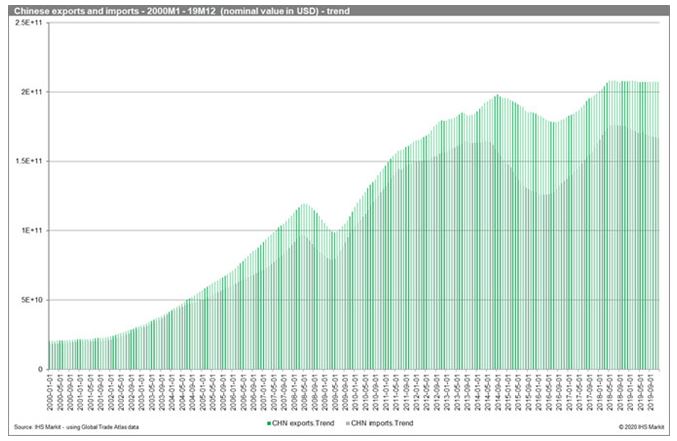
Figure 2 – Evolution of Chinese trade over the last 20 years. Source: IHS Markit, 2020
While it is undeniable that the world must learn to detoxify itself from its dependence on China, it is only by cooperating with the latter that it will succeed. For example, an American study estimates the cost to the US economy of a sudden economic decoupling of the two countries at USD 1 trillion.[10] Can America really afford it?
The dangers of Western blindness
Westerners understand that China is moving from the status of a factory to that of a power, threatening their own; but they are not vigilant enough about the attractiveness of the Chinese model in the eyes of a growing part of the planet.
It is true that China’s image is suffering from the Western media war machine, which has accelerated since 2018,[11] as shown by the Pew Research surveys.[12] But, on closer inspection, this negative image is also due to the fact that public opinion now sees China as the world’s greatest power… ahead of the United States.
Anti-China rhetoric is therefore a new cause of disconnect between pragmatic governments who may increasingly realise that they cannot afford to divorce from China on the one hand, and their media- and election-driven public on the other. This represents a very serious threat to either peace or democracy. He who sows the wind, reaps the whirlwind… Let’s hope it is still possible to rationalise this debate…
China’s model
For those who make the effort to observe China objectively, what they see is a machine operating in “project mode”,[13] hyper-efficient in terms of strategic vision, taking into account global realities, making and applying decisions, reaping economic success, managing change, modernising, inventing new models, capable of financing…
Five-year plans,[14] leadership principles,[15] MIC 2025,[16] Vision 2035,[17] urban mega-clusters,[18] environmental programme 2060,[19] education level of the population,[20] poverty alleviation,[21] creation of financial centres,[22] launch of development axes (OBOR),[23] opening of the largest free trade zone in the world (RCEP),[24] creation of multilateral banks,[25] global electricity infrastructures,[26] strict application of anti-monopoly laws[27]… compared to the West, the latter struggles to take the slightest decision, whereas China appears growingly as the most reliable actor. And reliability is what the world needs today.
A Chinese-style “socialist” country: Far from our eyes, the Chinese Communist Party has just launched its 14th five-year plan for 2021-2025. The plan aims to build a “socialist rule of law with Chinese features, modern in every respect” with a full deployment in 2035.[28] China now intends to set an example[29] and if the West does not now put all its energy into rethinking its own model instead of criticising that of others, we must anticipate bitter failure.
Faced with the dialectic of “democracy versus totalitarianism”, China is responding with one of “capitalism versus socialism”. In doing so, it resolutely places itself on the side of the people, against the rich (something it is credible for), recalling that it has lifted hundreds of millions of people out of poverty in 40 years[30] and that its human development project goes beyond its borders (Silk Roads,[31] financing of infrastructures in third countries,[32],…) not to mention the role played by China in vaccination campaigns in developing countries[33] where the WHO Covax programme sometimes seem to be running out of steam.[34] By combining terms like “modernity” and “socialism”, China will probably contribute to resurrecting a left that has been mocked or misused, at a time when social inequalities have greatly increased under pandemic economic impact. Enough to worry Europeans and Americans indeed…
And even a “democracy” by 2025: Xi Jinping recalls that China already considers itself a democracy, which he calls “whole-process democracy”, where every legislative decision is the result of deliberative processes ensuring “sound and democratic” decisions.[35] By stating that democracy is not complete if the people only have the right to vote without the right to broad participation, China is setting itself up as a full-fledged democratic actor, opening up the debate on future models in this area as well.
Here again, Westerners would do well not to take too lightly this positioning of China, however far removed it may be from the reassuring image they have (the “totalitarian China” cannot threaten the “free world”, can it?). Emerging and developing countries are also taking a distant look at the tangible results of the two competing “democratic” models… and what they see in applying simple criteria of peace, order and prosperity, is not to our advantage[36]… Remember that we will not be convincing for long in associating democracy with inefficiency, political paralysis and popular discontent.[37]
We even see an important challenge for the West in the current anti-Chinese doctrinal context: there is a growing risk that the attribution of Chinese successes to the absence of democracy will fuel a project to eliminate this constraint in a West, obsessed to remain competitive (a trend largely at work, by the way).[38] Not to mention that geopolitical tensions are never good for freedom and democracy…
Instead, our team has always found it healthier to start from the premise that democracy is in crisis all over the world and that it is through the exchange of experience and debate that we will find, each according to its cultural and historical constraints, the paths to reinvention. This is how we will continue to observe the progress made in the reform of American, European and Chinese democracies by 2024-2025. Indeed, 2024 is the year of both the American and European elections, and 2025 is the horizon that China has set for itself to deploy its democratic ‘socialist rule of law’. All three powers are aiming to reform their imperfect models.[39] Who will succeed?
America-China: how many divisions?
But let’s get back to this US-China war. America is counting its troops and seems invincible: Europe, Canada, Japan? Report! India? Present! Australia, New Zealand? Of course! …
The Chinese camp seems meagre at first glance. But let us not forget that they alone represent 1.5 billion people. On the Western side, after lining up the United States, the EU, Japan and Canada, we only reach 1 billion… Hence America’s unconditional interest in India and its 1.2 billion people… But if India and China are atavistic enemies, they are also neighbours, and the very nationalist Modi is not about to lose the independence that his country’s cooperation with both sides provides.[40] The same works for Africa, which is currently playing on all fronts and doing quite well.
It is also essential to understand that China is in the process of inventing its “camp”. As its space policy shows, its allies in this area will be the countries it helps to access space (Africa, Argentina[41], etc.). This method will certainly be applied to many other areas. This is why China has a strategic interest in global economic development: it is creating a pool of allies. And that is a win-win situation!
It is also important to bear in mind a fact of collective psychology that plays to the full against America/West: for the emerging or developing countries, China is one of their group who has made it. For Arab, African, Asian countries, etc., China is the image of hope: it is the first illustration in living memory that it is possible to not be a Westerner and to succeed.[42] Moreover it offers to help those countries do what it takes to succeed: work hard for 20 years and take its profits.
As for Africa, we have long believed that its development will go hand in hand, as for all emerging powers, with a “Renaissance” that will consist of creating its own mythical-historical corpus which, in the particular case of the black continent, will involve a massive and perhaps violent rejection of its European history.[43] The American “black-lives- matter” movement crossing the Atlantic in scattered orders to come and settle in the minds of Africans in Africa and Europe seems to us to be likely to set off the powder keg. If we are right in this gloomy anticipation, it is not very good news for the American calculation of bringing Africa into its camp via its European ally.
As for Saudi Arabia, the United Arab Emirates (UAE), etc., we have already seen that they are all signing agreements with China on all sides. Aramco has just put Chinese energy security at the top of its agenda.[44] The Chinese and Saudi foreign ministers recently discussed strengthening bilateral relations.[45] The UAE is considered by some to have switched to the Chinese side.[46] Etc…
It should also be noted that Muslim countries have chosen not to intervene in the Uyghur question[47] … starting with Xinjiang’s neighbouring nations of Kyrgyzstan and Tajikistan[48]… probably because they prefer this to the wave of terrorism and war of independence that was looming on their borders in the 2015s.[49]
The debt burden on emerging and developing economies
While the pandemic has damaged China’s image as the country that caused the problem, its handling of the crisis has worked against the West on the contrary. But that is not all: the huge stimulus packages and unconventional monetary policies that Europe and the US have been able to grant themselves will soon weigh heavily on the more fragile economies, which were initially less affected by the crisis (see next figure).
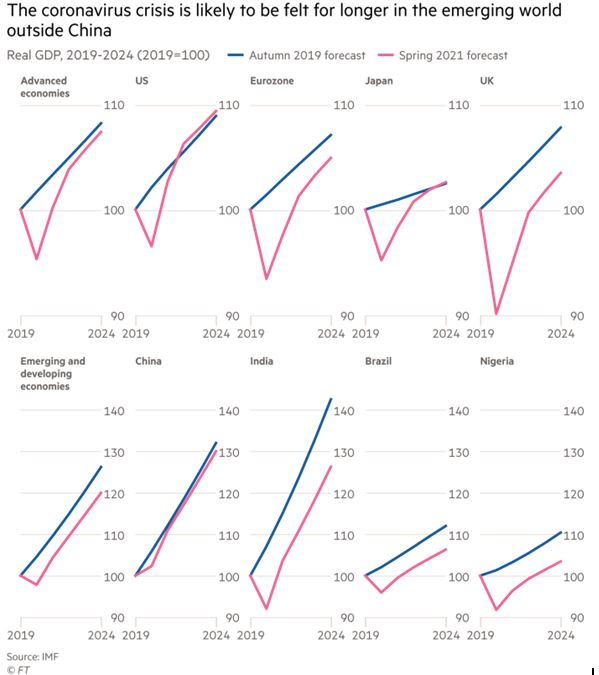
Figure 3 – Impact of the pandemic on different economies. Source: FMI / FT
Before reaching the countries of origin, the inflation induced by these plans will spread first to equity markets, then to developing countries. Brazil, for example, recorded 6.1% inflation in March, while its central bank had set a ceiling of 5.25%, and is likely to have to raise its key rates, thereby hampering the prospects for economic recovery and increasing the debt burden on this already struggling country.[50] It is interesting to take the example of this country which bet on the BRICS in 2009 before finding itself in the clutches of pro-American governments (Temer, then Bolsonaro). Despite the latters, Brazil has not been able to cut itself off from China, on which its agricultural exports depend.[51] Today, Bolsonaro’s “best friend” Trump is no longer in the White House[52] and China remained a key partner… If Brazilians start to make the link between their inflation and the pharaonic self-centred American plans, the country could soon revive the BRICS dynamics… whether under a Lula government in 2022 or under Bolsonaro himself.[53]
In addition to Brazil, we believe that the shocks that the Western bailouts will send to emerging and developing countries will bring them closer to the one of the three major economies that will appear more stable…
A Western camp much more divided than it looks like
This last example shows that the countries that America has managed to win over in recent years are far from secured. But that’s not all: the camp that Biden is currently rallying and which allows him to line up wonderful arguments of GDP (US + EU + JP + CA + NZ = USD 47 trillion vs CN + UK = USD 16 trillion), notoriety, military budget (in the West, nearly USD 1 trillion without counting Saudi Arabia… in the East, USD 300 billion), etc… is in fact very divided.[54]
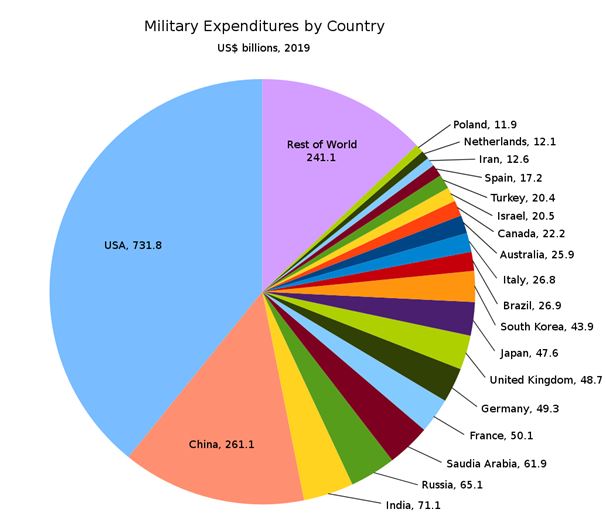
Figure 4 – Military expenditure by country. Source: Wikipedia
This so-called “democracies’ camp”, while everyone knows that these democracies are in crisis (producing division mostly), is already finding it difficult to make decisions internally. But what about their ability to take decisions in a group?
The EU is an example of the limits now reached by the model of co-governance it invented over the period 1957-1992. To name but one example, the FCAS (Future Combat Air System[55]) in recent weeks illustrated the complexity of international cooperation. The project is painfully emerging from an existential crisis born of Franco-German squabbles between Dassault and Airbus and revealing deep nationalistic attitudes towards advanced technologies and defence secrecy. The fact that Airbus, a symbol of successful intra-European cooperation in the 1970s and 1980s, is involved in this crisis is distressing.[56] The problem is that in the ultra-conflictual world ushered in by the US-China war, everyone is suspicious of everyone else, which is not good for transparency, cooperation and broad vision.
Some may hope that America’s return will give the West a head. In reality, once scalded, twice shy of cold water: the Europeans, under their Biden-enthusiastic exterior, have not ceased to harbour a growing distrust of America since at least 2003 and the war in Iraq. Trump has provided an ideal pretext to start translating this distrust into strategy. At present, the allies are willing to close ranks to increase their competitiveness against the Chinese, but no country is willing to give up more sovereignty to an already intrusive America. Let’s not forget that Shinzo Abe’s Japan[57] has done everything to reform its constitution in order to regain its strategic autonomy – in vain of course, but it is not the kind of project that is abandoned light-heartedly. As to the Europeans, they have always been in favour of building a European defence within or outside NATO…
Biden’s allies really only come to him in the hope of getting their freedom in exchange for their support…
What about Europe’s role in all of this?
If Europe begins to anticipate that its former colonies are in danger of drifting away in favour of China, if it notices that the famous allied camp is dragging its feet, if it sees that the American strategy only serves its national interest to the detriment of that of its partners, and above all if the only project of the alliance proves to be the containment of a China that it vitally needs, … it will perhaps be the last to leave the ship, but it will end up leaving it none the less.
The sustainability test of the rallying to America could be provided by the famous project of Global Corporate Tax that Biden has just announced – as if the idea was his.[58] After having wielded the stick, leading the allies into a confrontation with China – not without having previously cancelled the return of US troops to Germany, – the corporate tax project is the carrot waved under the nose of the Europeans who have been working on the subject for nearly two years and would no doubt welcome the US joining their efforts. However, if the Europeans realise that the US is not able to get the decisions adopted by their Congress, it will not be long before they drop everything.
An important milestone on the road to European positioning in the US-China conflict will be the German election in September. Indeed, in recent years, it is Merkel’s Germany that has maintained the link with the East at all costs (NordStream II and the EU-China Investment Agreement, namely). But a deeply anti-Russian and anti-China[59] Green government is likely to emerge from the elections. If this is the case, the EU is likely to sink even deeper into its atavistic Atlanticism… unless the countries currently hiding behind Germany raise their noses… or unless the Greens do not win the government in September.
If the United States does not manage to calm things down with China, Europe will soon be in serious trouble as a direct consequence of this confrontation from which it will have the greatest difficulty disentangling itself.
From the confrontation trap to the end of the EU
It is likely that many leaders are aware of the risk the West runs in this unnecessary confrontation. After all, Merkel’s Germany did her best to have the EU-China investment agreement negotiated before Biden’s arrival, anticipating the inevitable transatlantic trap that would then be sprung on the EU.[60]
That said, Biden himself is perhaps entangled in the anti-China rhetoric[61] that the Democratic Party has contributed so much to nourish during Trump’s 4 years in office (whom they have constantly accused of being pro-Russian, pro-China, a traitor to the fatherland[62]…). Now that public opinion, Congress and the press are all fired up, what can be done to get back on track with a rational foreign policy that builds future and peace?
The EU, which is not China’s systemic rival, may be able to calm things down. But it is clear that Biden’s election has soaped up the board and is again unbalancing the EU’s global positioning on the side of a transatlantic axis under Washingtonian leadership.
But for all the reasons listed in this article, we believe that by 2025 at the latest, if the US has persisted in dragging Europe into its confrontation, it is the EU that will fall apart. In 2016,[63] we already anticipated that the EU-as-we-know-it would not withstand the crisis in the transatlantic relationship – whether of one collapse (Trump) or one of excess (Biden).
The prospect of the break-up of an EU whose configuration would prevent its member states from moving closer to the economic dynamics coming from the East is becoming clear. The Dutch and the Spanish are calling for the cancellation of the rules of unanimous decision-making.[64] The European Commission, the European Council… have all agreed with this demand for a long time. But does the EU have a political system able to achieve these reforms? Does it still have time to wait for the Conference on the Future of Europe to (perhaps) bring out trans-European political parties that will (perhaps) manage to get enough seats in the 2024 legislature and will (perhaps) manage to launch referendums to which European citizens will (perhaps) be able to respond in an informed way? Or will member states decide to leave the ship in crowds to sign a new social contract?
The change in China’s situation calls for major transformations in the European decision-making structure if it wants to impose a third way that will avoid the world having to choose between being American or Chinese.
Join the GEAB Community on LinkedIn for more discussions on this topic.
_______________________
[1] Source: WallStreetJournal, 06/01/2021
[2] Source: Vienna Institute for International Economic Studies, 20/02/2019
[3] Source: ‘Chip Wars’: US, China and the battle for semiconductor supremacy, TRTWorld, 16/03/2021
[4] Source: China Briefing, 26/03/2021
[5] Source: European Commission, 30/12/2020
[6] One can then understand the damage of the ideological positions of intermediary structures (media, parliaments) on the interests of Europeans. Source: Merics, 17/04/2018
[7] Transfers that the Global Agreement on Investment would boost and secure… Source: NatLawReview, 14/01/2021
[8] Source: Euractiv, 05/10/2020
[9] Source: How China is reshaping International Developement, Carnegie Endowment, 08/01/2020
[11] Interesting to read the anticipation that The Diplomat made in 2010 (a magazine that always publishes balanced articles on this subject, diplomacy oblige…). Source: The Diplomat, 05/10/2010
[12] Source: PewResearch, 06/10/2020
[13] In many ways, China is run like a business.
[14] Source: SouthChinaMorningPost, 25/05/2020
[16] Source: China Briefing, 28/12/2018
[17] Source: GlobalTimes, 29/10/2020
[18] Source: ChinaBriefing, 25/10/2018
[22] Source: Shine, 26/09/2020
[24] Source: Nikkei, 05/01/2021
[26] Source: IEEESpectrum, 21/02/2019
[27] Very good analysis of the fine imposed on Alibaba by Beijing. Source: SouthChinaMorningPost, 11/04/2021
[28] Source: XinhuaNet, 11/03/2021
[31] Sources: OECD, 2018; Council on Foreign Relations, 28/01/2020
[32] For example in Africa via the AIIB (Asian Infrastructure Investment Bank): AIIB, 28/06/2020; but also in South America: CEPAL/UN, 2020.
[33] Source: Deutsche Welle, 05/02/2021
[34] Source: BBC, 09/04/2021 but it is very difficult to understand the myths and realities of vaccination in the pandemic war between the West and China (cf Financial Times, 24/03/2021). We read everything and the opposite of everything.
[35] Source: CCTV/Xinhua, 09/03/2021
[36] We have already seen that other countries seeking to democratise but fearing the Western model more than anything else are watching China closely, such as Saudi Arabia.. Source: Hoover Institution, 22/04/219
[37] The Chinese model seems to see the CCP as a kind of administration executing legislative decisions taken according to these principles of “whole-process democracy” based on consultation and consensus-building through deliberation…what Europe in particular is gradually putting in place: technocrats in executive roles in response to hyper-complexity (Draghi, Macron, etc… if not “populists”) and experiments with various and varied consultative processes to ensure that citizens identify with decisions. Success will come from the capacity or not of legislative assemblies to articulate with citizen consultative processes..
[38] As this article on freedom of expression shows. Source: Time, 24/01/2020
[39] US (source: Centre for American Progress, 10/02/2021); EU (source: Parlement européen, 26/11/2020); China (source: Xinhuanet, 11/03/2021)
[40] Source: MoneyControl, 20/03/2021
[41] Read our article on this topic in the current issue.
[42] Even Japan’s success 40 years ago represented a trophy on the Western chalkboard. By succeeding, the country joined the Western camp and adopted its garments.
[43] A good example. Source: The Guardian, 12/11/2017
[44] Source: Reuters, 21/03/2021
[45] Source: China.org, 25/03/2021
[46] Source: MiddleEastEye, 01/10/2020
[47] Sources: The Guardian, 04/07/2020; SouthChinaMorningPost, 06/04/2021
[48] Source: RFERL, 22/09/2020
[49] Interesting to see how the Uyghur terrorism issue was handled by the US-China Congressional Committee in 2016. Source: USCC.gov, 06/2026
[50] Source: MacauBusiness, 10/04/2021
[51] Source: CLBrief, 12/06/2020
[52] As if by chance, it is with Putin that Bolsonaro seems to be developing ties now. Source: MercoPress, 16/06/2020
[53] … whose notoriously anti-Chinese Foreign Minister has just resigned. Source: The Guardian, 29/03/2021
[54] Source: WallStreetJournal, 01/03/2021
[56] Source: DefenceWorld, 03/04/2021
[57] Source: Texas National Security Review, 05/2018
[59] Source: The Times, 06/01/2021
[60] Source: Politico, 29/12/2020
[61] At least that is what the highly respected Nikkei Asia suggests. Source: NikkeiAsia, 10/04/2021

Faced with the immense challenges that the US-China confrontation poses to the world, Europe must be aware that it is not a negligible player, that it must publicly state its [...]
By 2030, the International Space Station may have become the first space museum of the late 1990s, when everyone tried to work together. By prohibiting the Chinese from boarding the [...]
2021-2022 18-21/04/2021: The Boao Forum for Asia (BFA) Annual Conference 2021, “A World in Change: Join Hands to Strengthen Global Governance and Advance Belt and Road Cooperation” will take place [...]
The year 2025 is not so far ahead but it is a relevant horizon because it corresponds to the moment when beginner business students will resolutely enter the job market. [...]
Prices: Inflation, inflation, inflation // Equity markets: Reversal for sure // Taxes: What else? // Bitcoin-gold: Decoupling // _______________________________ Prices: Inflation, inflation, inflation // Whichever direction you look, inflation is [...]

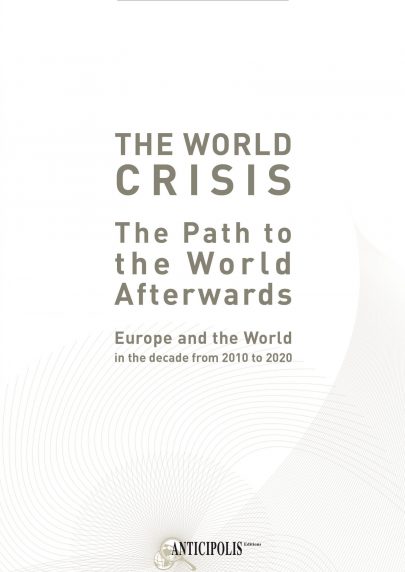
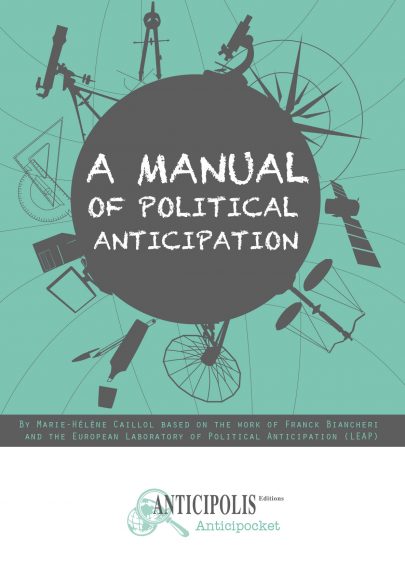
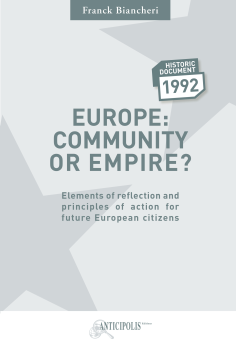

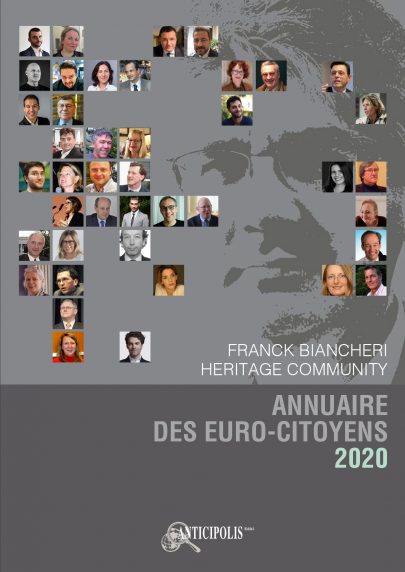
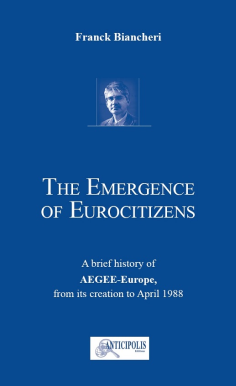
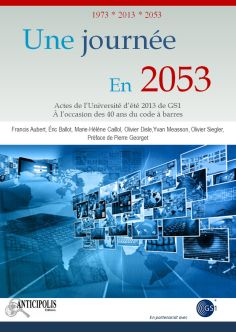
Comments